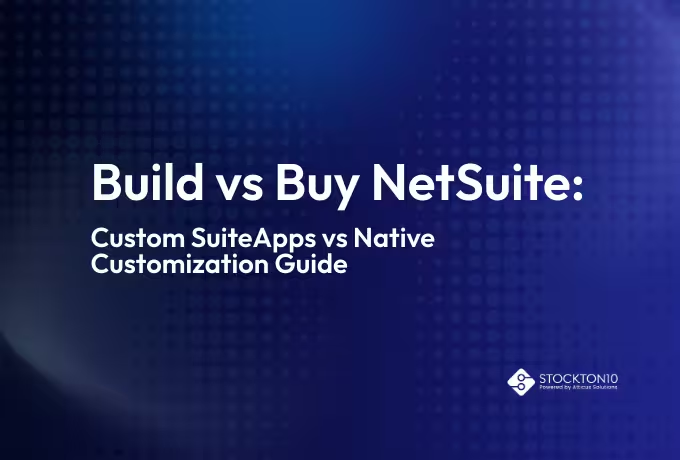When you invest in NetSuite Support US, you expect quick answers, senior expertise, and peace of mind.
What many executives don’t realize until too late is that the real challenge isn’t always the support team itself—it’s the contract terms that shape your experience.
These agreements are designed to protect revenue for the vendor, not necessarily to protect flexibility for your business.
The result? You can end up locked into expensive packages, stuck with hours you’ll never use, or facing renewal increases that blow up your budget planning.
If you’ve ever felt like your ERP support contract served the vendor more than it served you, you’re not alone.
Let’s look at four of the most common contract terms that quietly work against businesses relying on NetSuite Support US and how to navigate around them.
1. The “No Going Backwards” Rule on ARR
One of the most surprising discoveries for many executives is that NetSuite contracts often include a clause preventing Annual Recurring Revenue (ARR) from going down.
That means if you want to remove a service you’re not using, you can’t simply take it off your bill. You’re often required to replace it with something else of equal or greater value.
For example: A business paying $20,000 a year for a support package they rarely use may try to drop it at renewal. Instead, they’re told they must swap it for another add-on or module whether they need it or not.
This doesn’t reflect on the capability of the support team; it’s simply how contracts are structured.
The logic is that revenue should always go up, not down. But for customers, this rule can feel like paying rent for an apartment you’ve already moved out of.
Tip: During negotiations, push for flexibility clauses that allow you to reduce or reallocate spend if certain services no longer meet your needs.
2. Expiring Support Hours
Many businesses are surprised to learn that support hours in certain packages operate on a “use it or lose it” basis. You buy a block of hours for a quarter, but if you don’t use them all, they expire.
No rollover, no credit, no refund.
This model doesn’t reward efficiency—it penalizes it. We’ve spoken with teams who scramble at the end of each quarter to use up hours on non-critical issues, just so they don’t vanish.
That’s time and money spent on activity, not outcomes.
The real issue isn’t whether the support team is helpful. It’s that the structure of the contract forces businesses into a cycle of over-purchasing and under-using.
Tip: Look for NetSuite support services that offer non-expiring hours or flexible billing. If your hours never expire, you’ll use support when you actually need it, not because a deadline says so.
3. Renewal Uplifts Hidden in Fine Print
One of the most common frustrations executives share is the shock of renewal increases. It’s not unusual to see uplifts of 20%, 40%, even 100% or more at contract renewal.
This happens because of vague wording in contracts like: “renewal rates subject to list pricing.” That simple phrase gives the vendor the ability to reset your discount or raise rates dramatically, regardless of the relationship you’ve built.
We’ve seen companies who began with a 50% discount discover that it was quietly erased at renewal, doubling their costs overnight. Others found that dropping unused modules voided their renewal caps, triggering even steeper uplifts.
Again, the support team isn’t the problem here. It’s the way renewal mechanics are designed to maximize revenue capture.
Tip: Negotiate a renewal cap of no more than 5% and a price lock that keeps license and support rates stable. These protections ensure you won’t face unexpected budget shocks in year two or three.
4. Bundled Support Tied to Discounts
Many organizations discover their discounts or renewal rates are tied to bundled support packages. In practice, this means: keep the package, keep your discount.
Drop the package, and your license costs can snap back to full retail.
Executives often describe this as a catch-22: even if the package doesn’t fit their needs, dropping it costs more than keeping it. The support itself may be valuable for some companies, but for others it becomes a forced purchase.
This doesn’t mean the bundled program has no merit. It works for organizations with predictable, ongoing support needs.
But for companies who prefer flexibility, it can feel like paying for insurance you can’t customize.
Tip: If your business requires flexibility, push for support that’s optional, not mandatory. Evaluate third-party NetSuite support services that offer senior expertise without tying discounts or renewals to bundled programs.
What This Means for Executives
For CEOs, CFOs, and COOs, the issue isn’t whether NetSuite Support US has capable consultants—it does. The issue is whether the contract structure gives your business flexibility and value.
Too often, these fine-print terms leave companies:
- Paying for hours they never use.
- Facing unpredictable renewal uplifts.
- Locked into add-ons that don’t match their needs.
- Struggling to budget long-term because of hidden escalators.
This isn’t just a finance problem. It's an operational one. If your ERP support isn’t aligned with your business model, it slows down innovation, planning, and growth.
How to Negotiate a Better NetSuite Support US Contract
Here are four practical steps executives can take to avoid being boxed in:
- Negotiate early: Start renewal conversations 6–9 months in advance. The earlier you push for terms, the more leverage you have.
- Document everything: Keep a record of support tickets, hours used, and response times. This gives you evidence to renegotiate or pivot.
- Explore alternatives: Many NetSuite support services in the US offer non-expiring hours, senior consultants, and transparent billing. Compare them before signing a renewal.
- Secure future-proof terms: Ask for renewal caps, price locks, and flexibility clauses in writing, not just as a verbal promise from a rep.
A Smarter Way to Get NetSuite Support US
NetSuite is a powerful ERP system, but the fine print in support contracts often works against customers.
By recognizing these four terms, the no-going-backwards ARR rule, expiring hours, renewal uplifts, and bundled discounts, you’ll know where the risks lie.
The smarter path isn’t avoiding support. I’s choosing support that matches your business model instead of restricting it.
Stockton10 was built on this principle: non-expiring hours, senior consultants, transparent pricing, and a 30-minute response guarantee.
Ready to get out of rigid contracts and into flexible support?
Book a call with Stockton10 today and see how NetSuite Support US can work for your business—not against it.














